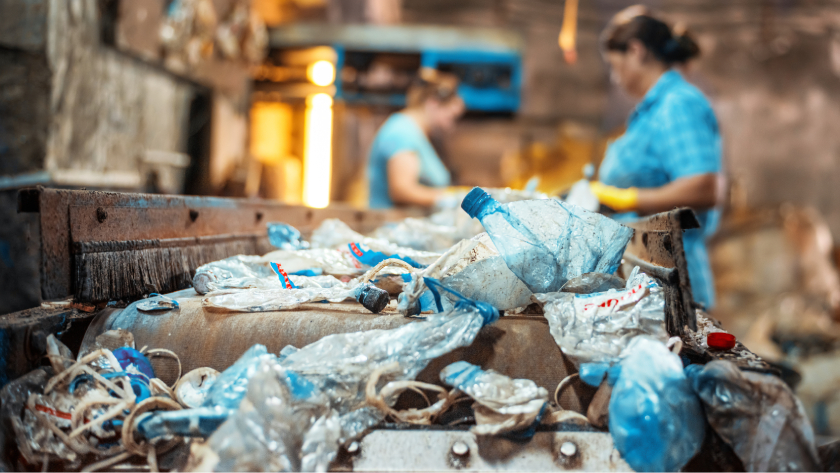Synopsis –
Extended Producer Responsibility (EPR) certification is essential for brands and manufacturers aiming to comply with environmental regulations and promote sustainability. This blog explores the numerous benefits of EPR certification, including enhanced brand reputation, regulatory compliance, cost savings, and resource efficiency. We will discuss how EPR certification supports the circular economy, the role of the Central Pollution Control Board (CPCB) in the certification process, and the steps involved in obtaining EPR certification. Additionally, we will highlight how Endeavor Recyclers assists brands and manufacturers in achieving and maintaining EPR certification, contributing to a greener and more sustainable future.
Table of Content
- Understanding EPR Certification
- Steps to Obtain EPR Certification
- Enhanced Brand Reputation Through EPR Certification
- Regulatory Compliance and Avoiding Penalties
- Cost Savings and Resource Efficiency
- Supporting the Circular Economy
- Role of CPCB in EPR Certification
- How Endeavor Recyclers Assists with EPR Certification
Understanding EPR Certification
Extended Producer Responsibility (EPR) certification is a formal recognition that brands and manufacturers have implemented effective waste management practices for their products throughout their lifecycle. This includes collecting, recycling, and environmentally sound disposal of products, particularly those made from plastic and electronic materials. EPR certification demonstrates a company’s commitment to sustainability and compliance with environmental regulations.
Obtaining EPR certification involves several key steps-
- Prepare the Required Documentation– Brands and manufacturers must gather all necessary documents, including a detailed waste management plan, proof of product registration, and other relevant certifications.
- Submit the Application—The application and the required documents must be submitted to the Central Pollution Control Board (CPCB) through its online portal.
- Review and Feedback– The CPCB reviews the application and may request additional information or modifications to ensure compliance with regulatory standards.
- Approval and Issuance– Once the application is approved, the CPCB issues the EPR certification, allowing the brand or manufacturer to proceed with their production activities.
- Implementation and Reporting– Brands and manufacturers must implement the waste management strategies outlined in their plan and regularly report their EPR activities to the CPCB.
Enhanced Brand Reputation Through EPR Certification
certification significantly enhances a brand’s reputation by demonstrating a commitment to environmental sustainability. Consumers are increasingly aware of and concerned about ecological issues and prefer supporting brands prioritising sustainable practices. EPR certification signals to consumers that a brand is taking responsible steps to manage its environmental impact, which can lead to increased customer loyalty and trust.
Regulatory Compliance and Avoiding Penalties
EPR certification ensures that brands and manufacturers comply with national and international environmental regulations. This compliance helps avoid potential fines and legal issues associated with non-compliance. By adhering to EPR requirements, companies can operate legally and sustainably, contributing to the broader environmental conservation and resource management goals.
Cost Savings and Resource Efficiency
Implementing EPR practices can lead to significant cost savings for brands and manufacturers. By designing products with recyclability in mind and using recycled materials, companies can reduce their reliance on virgin resources, which are often more expensive. Additionally, efficient waste management practices can lower disposal costs and improve overall resource efficiency.
Supporting the Circular Economy
EPR certification is crucial in supporting the circular economy by promoting the recycling and reuse of materials. Ensuring that products are managed responsibly throughout their lifecycle, EPR practices help conserve natural resources, reduce waste, and minimize environmental impact. This approach aligns with the principles of the circular economy, where products and materials are kept in use for as long as possible.
Role of CPCB in EPR Certification
The Central Pollution Control Board (CPCB) oversees the EPR certification process in India. The CPCB reviews applications, provides feedback, and ensures that brands and manufacturers comply with environmental regulations. The board’s online portal facilitates the application and reporting process, making it easier for companies to obtain and maintain EPR certification.
How Endeavor Recyclers Assists with EPR Certification
Endeavor Recyclers is dedicated to helping brands and manufacturers achieve and maintain EPR certification. Our team of experts provides comprehensive support, including preparing waste management plans, submitting applications, and ensuring compliance with regulatory requirements. We offer tailored solutions to meet the unique needs of each brand and manufacturer, making the EPR certification process more manageable.
At Endeavor Recyclers, we understand the complexities involved in obtaining EPR certification. We aim to simplify the process for brands and manufacturers, allowing them to focus on their core business activities. We offer end-to-end support, from initial consultation to obtaining necessary certifications and implementing effective waste management strategies.
Our state-of-the-art recycling facility supports brands and manufacturers by efficiently processing plastic and electronic waste. Our facility has advanced technology and ensures environmentally friendly recycling practices, contributing to the circular economy. By partnering with Endeavor Recyclers, brands and manufacturers can achieve their EPR goals and promote sustainable waste management.
In addition to our consulting services, we provide training and resources to help brands and manufacturers implement their EPR plans effectively. Our commitment to environmental stewardship and sustainability drives us to support companies in meeting their regulatory obligations and contributing to a greener future.
Conclusion
Maximizing Benefits Through EPR Certification EPR certification offers numerous benefits for brands and manufacturers, from enhanced reputation and regulatory compliance to cost savings and resource efficiency. By understanding the steps involved and leveraging the support of experts like Endeavor Recyclers, companies can navigate the complexities of EPR certification and reap its advantages. Endeavor Recyclers is committed to helping brands and manufacturers achieve their EPR goals and ensuring responsible waste management practices.


